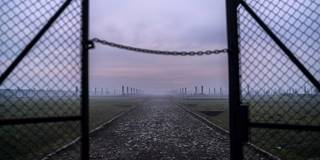75 years after the liberation of the Nazi death camp at Auschwitz, anti-Semitism is again on the rise across the Western world. This trend – and the weak response to it – is a harbinger of democratic decay.
MADRID – This week, world leaders are gathering in Jerusalem to commemorate the 75th anniversary of the liberation of the Nazi death camp at Auschwitz. At a time when anti-Semitism is on the rise across the democratic world, recalling the lessons of this painful history could not be more important.
These are difficult times for liberal democracy. Institutions are under strain. Rules and norms are being challenged and, in some cases, shamelessly flouted. Societies are becoming increasingly polarized and fragmented. And the toxic “isms” of the past – ethno-nationalism, populism, anti-Semitism – are being revived.
Whereas ethno-nationalism and populism have been dominating debates for years – particularly since the Brexit referendum and US President Donald Trump’s electoral victory in 2016 – the resurgence of anti-Semitism has been less discussed. And yet the evidence of this trend is abundant – and chilling.

MADRID – This week, world leaders are gathering in Jerusalem to commemorate the 75th anniversary of the liberation of the Nazi death camp at Auschwitz. At a time when anti-Semitism is on the rise across the democratic world, recalling the lessons of this painful history could not be more important.
These are difficult times for liberal democracy. Institutions are under strain. Rules and norms are being challenged and, in some cases, shamelessly flouted. Societies are becoming increasingly polarized and fragmented. And the toxic “isms” of the past – ethno-nationalism, populism, anti-Semitism – are being revived.
Whereas ethno-nationalism and populism have been dominating debates for years – particularly since the Brexit referendum and US President Donald Trump’s electoral victory in 2016 – the resurgence of anti-Semitism has been less discussed. And yet the evidence of this trend is abundant – and chilling.